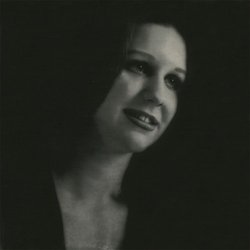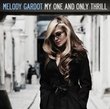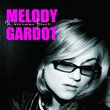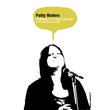| All Artists: Patty Waters Title: Patty Waters Sings (Dig) Members Wishing: 1 Total Copies: 0 Label: Esp Disk Ltd. Release Date: 2/24/2009 Genres: Jazz, Pop Styles: Avant Garde & Free Jazz, Vocal Jazz, Vocal Pop Number of Discs: 1 SwapaCD Credits: 1 UPC: 825481010252 |
Search - Patty Waters :: Patty Waters Sings (Dig)
 | Patty Waters Patty Waters Sings (Dig) Genres: Jazz, Pop After studying voice in college, the Iowa-born Patty Waters made her way East to New York City where she was discovered by Albert Ayler, who was so impressed with her performance that he brought her over to ESP-Disk (his l... more » |
Larger Image |
CD DetailsSynopsis
Album Description After studying voice in college, the Iowa-born Patty Waters made her way East to New York City where she was discovered by Albert Ayler, who was so impressed with her performance that he brought her over to ESP-Disk (his legendary 'Spiritual Unity' had re Similar CDs
|
CD ReviewsPaint It "Black"! Gregor von Kallahann | 01/25/2004 (4 out of 5 stars) "I don't tend to rush out to buy the music of experimental vocalists these days. I don't have any Diamanda Galas CDs and all my Yoko Ono records are old vinyl ones. Nowadays I mainly favor singers, like the great and sadly ignored Tracy Nelson, whose vocal prowess certainly tests the limits of the human voice--without straying too far from the melodic or actually verging onto avant-garde territory.
But there was a time when I was very interested indeed in vocalists who explored the possibilities of the human voice in different and exciting ways. I understood, I thought, what Yoko was up to. And I liked what I had heard of avant-garde classical (Jan De Gaetani) and experimental jazz singers (Annette Peacock comes to mind as a favorite from the era). Rock singers like Grace Slick and Janis Joplin pushed their genres envelope from time to time, and others like Dorothy Moskowitz (of the United States of America) and Anisette (of Savage Rose) were working in a more experimental framework to begin with. One artist that I was always curious about but had never actually heard was the legendary jazz singer Patty Waters. She worked with musicians like Albert Ayler and James Burton and recorded a couple of albums for ESP in the mid-60's before dropping out of the music scene almost entirely for 30 years.Much of her legendary status among enthusiasts of experimental mucic lay in a single track from this, her first album. Her version of the traditional "Black Is the Color of My True Love's Hair" is a watermark in the history of avant garde vocalizing--a haunting intro consisting of an ethereal rendition of the well-known folk song which then segues into a thirteen minute improvisation with Waters' chanting, moaning and screaming the word "black." Not for the faint of heart!The funny thing is the first several songs are brief but not-atypical jazz numbers, songs I wouldn't hesitate to play for almost anyone These efforts, all penned or co-penned by Patty Waters herself, are essentially little cocktail haikus--delicate, moody and hauntinlgy performed. They echo many a standard but have their own uniquely dispassionate appeal. She's been favorably compared to Billie Holiday, and one can hear the influence, but ultimately Waters proves to have her own style and creates a strikingly original persona. If I were given to glib music crit shorthand, I might say something cute like "Billie Holiday meets Yoko Ono." Such formulations give you an dea, sort of, but are ultimately pretty shallow. Every true artist has to find her or his unique voice, and it's pretty clear from this recording that Patty Waters was finding hers on this recording.She continued to explore both sides of her musical personality. This album was followed almost immediately by the live COLLEGE TOUR, which is almost completely experimental. Then in the mid-90s she released an independent CD entitled LOVE SONGS, and it was not meant ironically. It consists of all the old standards done straightforwardly and distinctively. Patty Waters is a real find--belated in my case, but nonetheless welcome. The 90s comeback attempt seems to have been brief, and I have no idea what she's up to these days. It would be nice if this millenial voice were to resurface once again in the new millenium. But for now, her three solo releases are on heavy rotation in my CD player.Note: I notice that there are separate listings for the US and the import edition of this recording. That's probably a technical necessity, but as you can see by even a quick look, the track listings are the same, so it is really the same album. Forgive the cross posting, then, and should you decide to order this recording, perhaps just consider price and availability." |




